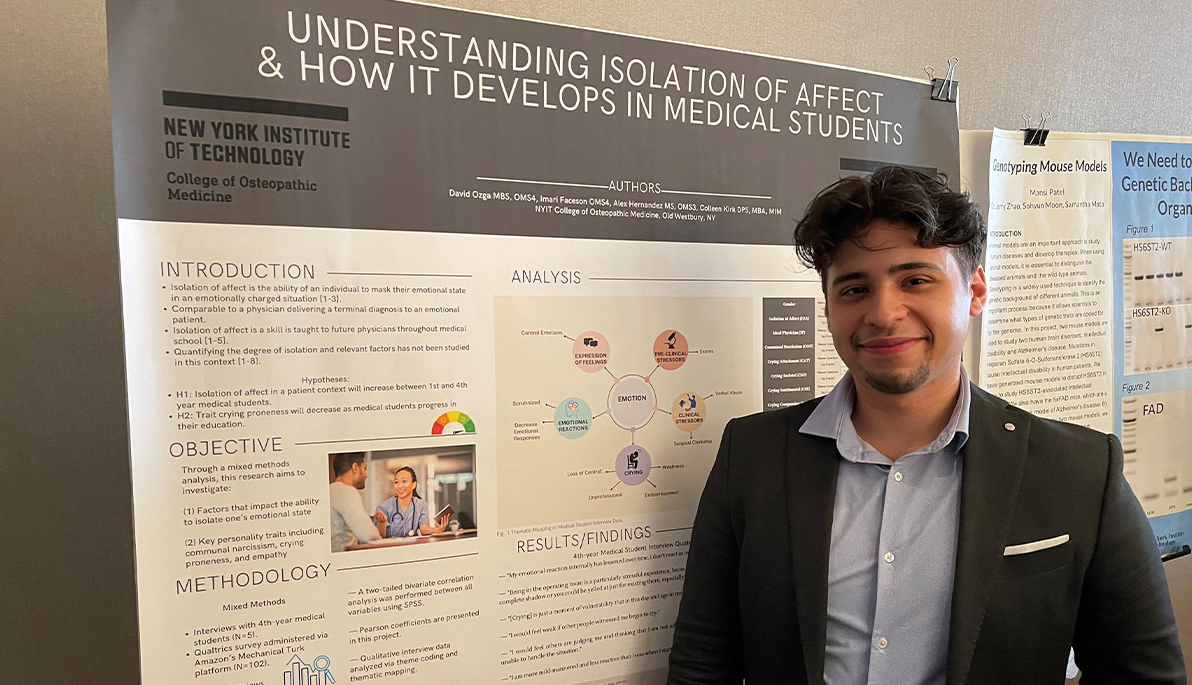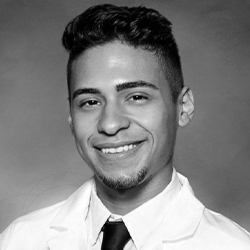
Student Profile: Alex Devante Hernandez

Major: D.O., Osteopathic Medicine/M.B.A.
Year Expected to Graduate: 2023
Campus: Long Island
Hometown: New York, N.Y.
Breaking Barriers
Native New Yorker Alex Devante Hernandez was always interested in serving his local community. “One of the things that really drew me to New York Tech was the curricular opportunity to spend a year rotating at an inner-city hospital in the New York City area,” he says. “I found it both meaningful and rewarding to learn and contribute to the healthcare of diverse communities within Brooklyn and the Bronx—communities I knew very well.”
The youngest of three children in a single-parent household, Hernandez says that his early life experiences are what set him on his current path. “As an inner-city kid, I was drawn to healthcare because of the struggles that my family and I faced while trying to access public assistance and medical care in an underserved urban environment,” he says. “I’m still figuring out what my career will look like down the line, but I know it will include advocacy, teaching, research, and facilitating the provision of healthcare services to vulnerable groups.”
With these wide-ranging goals, it stands to reason that Hernandez would take advantage of the opportunity to pursue a dual degree at New York Tech. Earning his Doctor of Osteopathic Medicine and M.B.A. at the same time allows him to approach his pursuits with a unique point of view. Recently, Hernandez and a team of fellow D.O./M.B.A. students presented a project at New York Tech’s Symposium of University Research and Creative Expression (SOURCE) on how emotional intelligence changes during medical school. “Associate Professor Colleen P. Kirk challenged us to think about healthcare through a lens of value branding and encouraged innovation in the classroom, which led to projects like these,” he says.
During his time at New York Tech, Hernandez has served as the president of the College of Osteopathic Medicine’s local chapter of Physicians for Human Rights, participated in the Community Free Clinic, Asylum Clinic, and other volunteer initiatives. He was also a part of public health HIV/AIDS prevention research and co-authored a paper that was ultimately published in the Annals of LGBTQ Public and Population Health. All these experiences and a recent rotation through a foster care clinic has reaffirmed his strong commitment to a future career in advocacy. “This experience challenged me to grow my awareness and communication skill set as well as learn about what it takes to meet the complex medical and psychosocial needs of youth growing up in foster care,” he says. “It made me want to continue learning about barriers to equity that exist for varied groups in society and figure out where I might be able to assist in closing them.”









